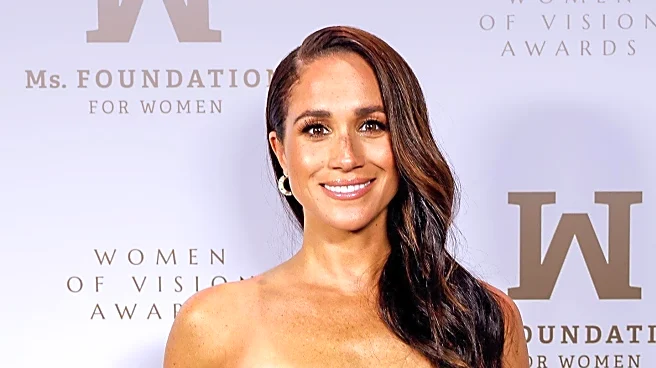What's Happening?
The Federal Government of Nigeria is intensifying its investments in health infrastructure, human resources, vaccines, and essential commodities to strengthen the country's healthcare system. This initiative
is part of President Bola Tinubu's Renewed Hope Agenda, which aims to address longstanding healthcare challenges such as high maternal and infant mortality rates, inadequate primary healthcare coverage, and shortages of essential medicines and vaccines. Prof. Muhammad Pate, the Coordinating Minister of Health and Social Welfare, emphasized the importance of these investments during the 2025 Joint Annual Review of the Health Sector in Abuja. The review highlighted the government's commitment to improving health outcomes through targeted investments and partnerships with development agencies.
Why It's Important?
The enhancement of funding for health infrastructure and workforce is crucial for Nigeria as it seeks to overcome significant healthcare challenges. By investing in these areas, the government aims to reduce mortality rates and expand primary healthcare coverage, which are essential for improving the overall health of the population. The involvement of development partners and the alignment of national health priorities indicate a collaborative effort to address these issues. This initiative not only promises better health outcomes but also strengthens the healthcare system's resilience, potentially leading to long-term benefits for the country's socio-economic development.
What's Next?
The Federal Government plans to continue its efforts to optimize and increase resources for healthcare, ensuring sufficient funds are allocated for vaccines and essential commodities. The ongoing health reforms are expected to sustain momentum into 2026 and beyond, with a focus on improving health indicators and expanding primary healthcare. The government is committed to maintaining the confidence of Nigerian citizens in these reforms, with President Tinubu's leadership being recognized as a driving force behind these initiatives. The collaboration with traditional leaders, private sector, and civil society further supports a comprehensive approach to enhancing the health of Nigerians.
Beyond the Headlines
The government's approach to healthcare reform reflects a whole-of-government and whole-of-society strategy, involving various stakeholders such as traditional leaders, private sector, and civil society. This inclusive approach not only aims to improve health outcomes but also fosters community resilience and social justice. The emphasis on health-promoting behaviors among citizens highlights the cultural dimension of these reforms, encouraging individuals to take an active role in their own health and wellbeing. The successful joint review underscores the potential for long-term shifts in healthcare policy and practice in Nigeria.










